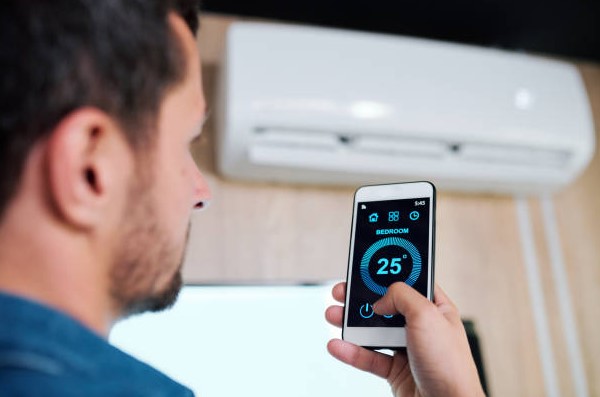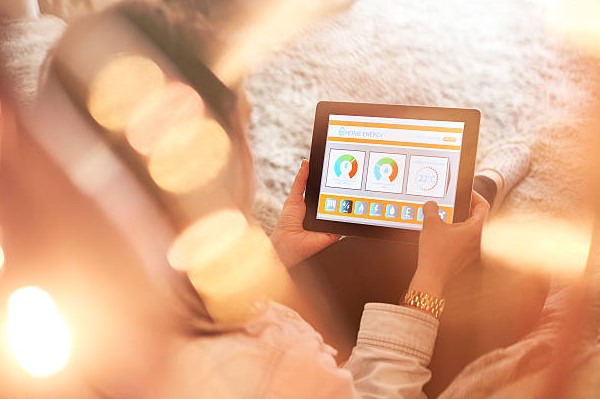The HVAC (Heating, Ventilation, and Air Conditioning) industry has witnessed significant advancements in recent years and one of the most transformative developments is the integration of smart technology. Smart HVAC systems utilize automation, remote control, and data analytics to enhance energy efficiency, comfort, and convenience for homeowners and businesses alike. In this article, we will explore the concept of smart HVAC technology, its benefits, and how it is reshaping the way we control climate systems.
Understanding Smart HVAC Technology
Smart HVAC technology refers to heating and cooling systems that incorporate smart devices and software to optimize energy usage, automate processes, and allow remote control through mobile devices or computers. These systems go beyond traditional thermostats and offer a range of advanced features that adapt to occupants’ preferences, weather conditions, and usage patterns.
Automation for Energy Efficiency
One of the primary advantages of smart HVAC technology is its ability to automate processes for increased energy efficiency. Smart HVAC systems can automatically adjust temperature settings based on occupancy, time of day, and weather conditions. For instance, the system may lower the heating or cooling when no one is home and raise it just before occupants return, optimizing comfort while reducing energy consumption.
Remote Control and Monitoring
Smart HVAC systems enable remote control and monitoring through dedicated mobile apps or web interfaces. This allows users to adjust settings, set schedules, and monitor energy usage from anywhere, providing unparalleled convenience and flexibility. Remote control features are particularly beneficial for those who travel frequently or desire to manage their HVAC systems while away from home.
Learning and Adaptive Capabilities
Many smart HVAC systems incorporate learning algorithms that analyze usage patterns and adapt to users’ preferences over time. The system may learn when occupants prefer certain temperatures or adjust to seasonal changes automatically. This learning capability ensures that the HVAC system operates at optimal efficiency while maintaining occupant comfort.
Integration with Smart Home Ecosystems
Smart HVAC technology seamlessly integrates with broader smart home ecosystems. Through integration with platforms like Amazon Alexa, Google Assistant, or Apple HomeKit, users can control their HVAC systems using voice commands or create customized automation routines that interact with other smart devices in their homes, such as smart lighting or smart blinds.
Real-Time Data and Analytics
Smart HVAC systems collect and analyze real-time data on energy usage, temperature, and system performance. This data is presented to users through user-friendly interfaces, allowing them to make informed decisions about their HVAC settings and energy consumption. By understanding their energy usage patterns, users can identify areas for further optimization and potential cost savings.
Energy Efficiency and Cost Savings
The automation and learning capabilities of smart HVAC systems lead to significant energy savings. By adjusting temperature settings based on occupancy and weather conditions, users can reduce unnecessary energy consumption. Additionally, the ability to monitor energy usage in real time empowers users to identify energy-intensive periods and make informed decisions to lower utility bills.
Elevated Comfort and Ease
Intelligent HVAC systems offer unmatched comfort and convenience compared to traditional systems. Remote climate control allows users to return to a cozy home without wasting energy during their absence. Furthermore, smart systems learn and adapt to occupants’ preferences, providing personalized comfort without manual adjustments.
Enhanced Indoor Air Quality
Some smart HVAC systems also oversee and manage indoor air quality by incorporating air purifiers or ventilation components. This creates a healthier living space by effectively controlling humidity levels, filtering allergens and pollutants, and lowering the risk of respiratory problems.

Promoting Environmental Sustainability
Smart HVAC technology’s energy efficiency helps promote environmental sustainability by reducing greenhouse gas emissions and overall energy usage. As more homes and businesses install smart HVAC systems, their combined effect on the environment becomes substantial.
Proactive Diagnostics and Maintenance Notifications
Smart HVAC systems can self-evaluate potential issues and send maintenance notifications to users and service providers. This forward-thinking approach helps avoid system failures and minimizes the chances of expensive emergency repairs. Moreover, remote diagnostics allow service technicians to come prepared with the necessary tools and components, making the repair process more efficient.
Smart HVAC technology signifies a groundbreaking change in how we regulate and manage heating, ventilation, and air conditioning systems. The automated features, remote control options, and learning capabilities of smart systems provide unparalleled comfort, energy efficiency, and convenience for users. By integrating real-time data and analytics, users can make well-informed decisions to optimize their energy consumption and lower utility expenses. As smart home ecosystems continue to develop, smart HVAC technology will increasingly play a vital role in enhancing comfort levels, promoting energy sustainability, and influencing the future of climate control in residential and commercial settings.




